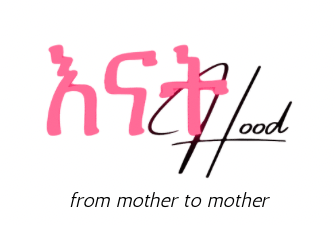
I am breastfeeding our first baby while pregnant with our second. And I have got questions if breastfeeding is safe for the baby inside my womb and my health.
I won’t lie; I was concerned about it first. What if breastfeeding would harm the baby growing inside me?
Also, I don’t want to force our son to wean very early. I had a promise to myself to breastfeed for at least two years.
As the age gap between our babies would be only 18 months, it would have been too early for our son to wean as soon as I got pregnant.
Therefore, when I knew I was pregnant with our second baby, my head spun with all the questions and tried to find a balance.
I read articles, researchers, including other moms’ experiences. I have discussed it with my midwives and kept nursing after I got a green light.
Along the way, I have learned the amazing nature of our body’s capability.
So I would like to share in this blog post about my breastfeeding experience while pregnant; what does science say about it? The challenges and best tips on how to breastfeed a toddler while you’re pregnant?
Furthermore, I will cover breastfeeding siblings – tandem nursing. I hope you will find it helpful.
Is It Safe to Breastfeed While You’re Pregnant?

It is fair to have a concern for the health of your unborn baby. But there is no evidence continuing to breastfeed will deprive your unborn child of necessary nutrients.
You won’t be depriving your unborn baby of nutrients by continuing to breastfeed so long as you eat reasonably well.
Getting plenty of rest, eating nutrient-dense food, and drinking a lot of water will help you stay well-nourished and healthy.
Another common concern is that the hormone oxytocin, released by nipple stimulation while breastfeeding, could trigger early labor.
However, there is no reason to suggest a connection between miscarriage and breastfeeding in a normal pregnancy.
According to Madarshahian and Hassanabadi (2012), the research compared success rates in reaching full-term delivery and newborn birth weights between two groups of pregnant women with more than one child: those who breastfed during pregnancy and those who did not.
This study found no significant difference in babies born at full-term or non-full-term between the two groups; birth weight was also unaffected.
The researchers concluded that breastfeeding during normal pregnancy is safe and “does not increase the chance of untoward maternal and newborn outcomes.”
Overlap breastfeeding is a personal choice for a mother.
Additionally, according to Hilary Flowers (2003), Adventurers in Tandem Nursing: Breastfeeding during pregnancy and beyond, the uterus is “deaf” to oxytocin throughout pregnancy. It’s sensitivity to this hormone only increases around the onset of labor.
However, If you expect multiples or are considered to be at risk for miscarriage or early delivery, discuss your options with the healthcare professionals supporting you.
Milk Supply and Colostrum While Pregnant
Often mothers who breastfeed while pregnant find their milk supply decreases around the fourth or fifth month (sometimes earlier than that).
It was true for me as well. My milk supply was almost none at the five months of pregnancy. And around seven months, colostrum started coming in again.
The composition of your milk will also change slightly. These changes are associated with hormonal changes during pregnancy, and nursing more frequently or pumping won’t increase production in the same way it would do if you were not pregnant.
If your breastfeeding baby is less than a year old, watch the baby’s weight gain to ensure he is getting enough to eat.
Our boy is more than a year old now, and eating solid foods well gives me peace of mind even though my supply drastically decreases.
It’s also common for the flavor of your milk to change, but these are not harmful to the breastfeeding child. These changes may prompt some older toddlers to nurse less often or to wean entirely.
Some women are concerned if colostrum will still be available after birth for the newborn.
According to Breastfeeding Answers Made Simple, by Nancy Mohrbacher (2010), “the older breastfeeding child will not deprive the newborn of colostrum by breastfeeding during pregnancy.” No matter how often or long the baby breastfeeds, colostrum will still be available after birth for the newborn.
Tips to Breastfeed Toddler While You’re Pregnant
Breastfeeding your toddler while you’re pregnant is not the same as you’re not pregnant. The pregnancy hormones may make you sensitive
or your nipples may be tender.
When your belly starts getting big, breastfeeding positions you used to may not any longer be comfortable.
Here are some tips for easier breastfeeding while pregnant:
- Try breastfeeding your toddler lying down
- See if your toddler can stand or sit down beside you and breastfeed instead of sitting on your lap.
- If your child is old enough, ask to nurse more gently or for shorter periods.
- Applying breathing techniques from childbirth classes can help you cope with the increased sensitivity.
What is Tandem Nursing?
Tandem nursing is the practice of breastfeeding an infant and a toddler or two babies simultaneously.
Breastfeeding twins or triplets are also a tandem nursing.
Tandem nursing can be done in few different scenarios:
- Breastfeeding two at the same time, with one baby on each breast or
- Nursing the baby first to make sure he gets the most milk or
- The toddler first, perhaps it can help to alleviate engorgement, then nursing the baby
Why Tandem Nursing
It is obvious breastfeeding has emotional and physical benefits to children and mothers. Read here where I wrote about breastfeeding benefits for babies and here all about breastfeeding.
Therefore a mother may want to continue to breastfeed her older child along with the new baby. Let look at how tandem nursing can be beneficial besides the obvious breastfeeding benefits:
- Tandem nursing can relieve engorgement, mainly in the early days, for a mother with a newborn.
- The toddler can help manage a mom’s fast letdown. Usually, once mature milk comes in a few days after birth, milk letdown is fast. The older baby can breastfeed before the newborn nurses, helping the infant not feel overwhelmed or gassy/colicky from the rush of milk to her immature digestive system.
- Emotionally, tandem nursing may help reduce feelings of jealousy from the older child. Also, it can bond the two children together as it’s an activity they can do together if you nurse simultaneously. Even if they don’t do it at the same time, it’s something they share.
- It may support robust milk production in mom instead of pumping.
- For moms, breastfeeding the older child can be a special way to stay connected with the older child during this exciting and somewhat disorienting time in family life.
Potential Challenges to Tandem Nursing
Like everything, there can be issues with tandem nursing. Here are remedies for common problems.
- Problem – The older child will mainly take all the milk the baby needs, primarily the rich, creamy hindmilk.
- Remedy – Nurse the children on different breasts. Or put the baby on the breast the toddler last nursed on, so the baby gets the rich hindmilk.
- Problem – Moms worry about their nipples becoming too sore from so much nursing.
- Remedy – Areolar glands surrounding the nipples that secrete oil to keep nipples lubricated and protected. You can also use natural nipple cream, e.g., Coconut oil.
- Problem – Worry of won’t produce enough milk
- Remedy – Breastfeeding works on a demand and supply basis. Therefore, the more baby and toddler nursing, the more milk produced.
What if Breastfeeding While Pregnant and Tandem Nursing Isn’t for Me?
First of all, before you even start, I suggest you discuss it with your healthcare provider. I am glad I did that as soon as I knew I was pregnant.
My midwife explained everything to me: what to expect, what to do? Plus, warning signs, so I don’t hurt myself or my babies unknowingly.
Therefore, be aware of these red flags that may indicate your breastfeeding relationship needs help:
- While you’re pregnant and nursing, feeling contractions and experiencing severe sensitivity/ restlessness.
- You feel yourself withdrawing from your nursing child.
- Feeling you have no choice when it comes to nursing.
- You are prone to snapping at your child while breastfeeding.
- You are getting exasperated enough to consider weaning on the spot.
So remember, as breastfeeding while pregnant, and tandem nursing is a personal choice to make for a mother, a decision to wean an older toddler is the same. Mama, don’t beat yourself up. You know what is best for yourself and your children. Weaning your older child can be a solution.
Do you breastfeed an older child while you’re pregnant? Do you have a plan to do so? What are your thoughts and experiences about breastfeeding while pregnant or tandem nursing? Let me know in the comment below.
Source:
- La Leche League- https://www.llli.org/breastfeeding-info/breastfeeding-pregnancy-tandem-nursing/
- Madarshahian and Hassanabadi (2012) https://pubmed.ncbi.nlm.nih.gov/22333968/
- Hilary Flowers (2003), Adventurers in Tandem Nursing: Breastfeeding during pregnancy and beyond Adventures in Tandem Nursing: https://www.amazon.com/dp/0912500972/ref=cm_sw_r_cp_api_glt_fabc_0P9QFSW7E41P03J7DJSD


 Prenatal Care and Help for Childbirth
Prenatal Care and Help for Childbirth
[…] made me nervous the most in the motherhood journey. I gave birth in the tub without medication, tandem nurse, and traveled solo internationally with two under three toddlers from the USA to Ethiopia. I did so […]